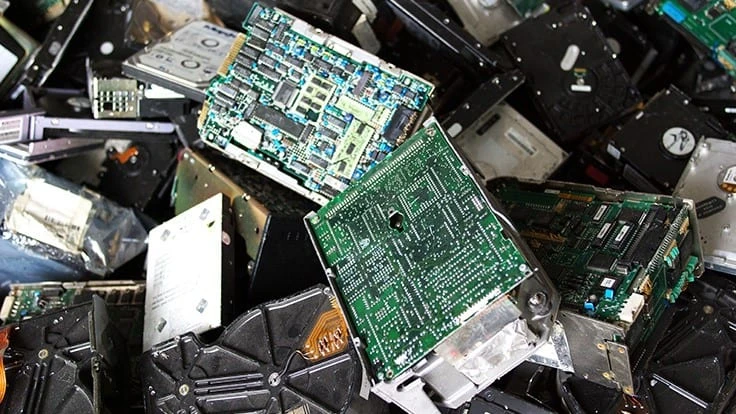
stock.adobe.com
While many aspects of recycling are evolving in light of the pandemic, electronics recycling has been impacted extensively as more companies have made their employees work from home
The webinar was moderated by Craig Boswell, co-founder and president of Batavia, Illinois-based HOBI International and featured three industry experts: Walter Alcorn, vice president of environmental affairs at Arlington, Virginia-based Consumer Technology Association; Sean Magann, vice president of sales and marketing at Chicago-based Sims Lifecycle Services; and Greg Voorhees, director of recycling at Minneapolis, Minnesota-based MRM Recycling.
After a short introduction from Boswell, all three speakers discussed their thoughts on a variety of topics impacting the electronics recycling industry, most importantly right now, COVID-19.
When it comes to the electronics industry, COVID-19 has had a major impact over the last six months. How long those impacts will last is tougher to determine.
“Certainly, short-term, COVID-19 is the big impact,” Alcorn said. “For the industry overall, it’s kind of a mixed package. We’ve had a number of companies that have had sales go up during COVID-19. We see a lot more remote work, remote education.”
Alcorn added that supply chains are feeling the affects of the pandemic, as it’s becoming challenging to meet the demands, and Magann echoed that opinion.
The demand for more cloud space has increased largely because of COVID-19. The increase in use of Netflix, Zoom, Dropbox and other online resources have pushed companies to have to expand data centers. “More and more hardware, the hardware we have on our desktops, will do less of the work,” Magann said. “I think the pressure to turn that material over, even with COVID-19, will get stretched out.” He added that so much of what used to depend on hardware now uses the cloud, like cable boxes.
“It’s been harder and harder for companies, and individuals to be honest, to get the IT material that they need,” he said. Employees who formerly only used desktops at the office, now need laptops at home. Students who previously shared a computer at home with their siblings or family, now each need their own for online schooling.
“For the last eight-and-a-half years while I’ve been with MRM, I have worked out of a home office, so I was used to working from home,” Voorhes said. “Even though I had a home office, it drastically changed my life because all of a sudden my wife came home, my kids came home, the router couldn’t handle it.”
Voorhees added that many states shut down collections for months, which made returning material even more challenging for those who were able to.
“As we’re looking forward, we’re trying to figure out in the landscape of the U.S., how much of the consumers behavior’s going to change to drop of their TVs or other material at a collection event,” Voorhees said. But he added that collection events are changing because of COVID-19, and the challenges with that could impact numbers too.
While the pandemic is a global issue, it isn’t the only worldwide issue impacting supply chains.
“With all the focus on China, that is really a primary supplier, or a place where the supply chain for the electronics industry exists,” Alcorn said.
He added that the globalization of goods and products has been around for decades but anticipates the globalization of services will catch up. “I think that’s going to put a lot of economic pressure on developed countries,” he said.
It’s too soon to tell when supply chains will return to a more normal level, but Alcorn said he believes the electronics recycling industry will have to continue to adapt for some time.
“The important thing to recognize is for the electronics supply chain, the competition is so ridiculously tough, that things were changing all the time to start with,” Alcorn said. “The playing feel has expanded, before you had three or four possible suppliers in east Asia, now you’re looking at more countries, more facilities around the world. If anything, we’re going to have to see how this trade war plays out. I don’t see a lot of those electronic component manufacturers and suppliers coming back to the U.S.”
Latest from Recycling Today
- BMW Group, Encory launch 'direct recycling’ of batteries
- Loom Carbon, RTI International partner to scale textile recycling technology
- Goodwill Industries of West Michigan, American Glass Mosaics partner to divert glass from landfill
- CARI forms federal advocacy partnership
- Monthly packaging papers shipments down in November
- STEEL Act aims to enhance trade enforcement to prevent dumping of steel in the US
- San Francisco schools introduce compostable lunch trays
- Aduro graduates from Shell GameChanger program





